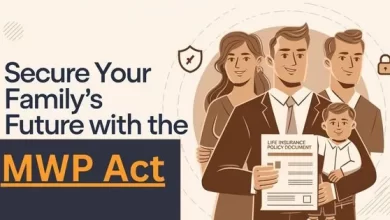
Photo by Mikhail Nilov from Pexels
If you’re in your late 20s and have heard your friends talk about insurance countless times, it may be intriguing to know what makes it a great asset. On the other hand, if you have encountered people who don’t have great stories about insurance, you might be indifferent about it. Worse, you dislike it.
If you’re the latter type, it might be hard for you to see the benefits of having an insurance plan. That is completely understandable. We can expect that 2 out of 10 people are indifferent about insurance. Most especially if they have zero knowledge about how it works and its long term perks.
On the other hand, if you are eager to learn more about insurance and even consider getting one, it can be overwhelming to start. Not only does the whole concept seem intimidating, but also its terms and policies can seem complicated for beginners.
Regardless of whether you’re indifferent or interested in insurance, there are a lot of factors that you should know first. To help you, here are 5 questions for you to answer to help you decide if you should get one or not.
1. Are there people who depend on you financially?
One of the top factors that push people to get insurance is the people around them. Specifically, people who financially depend on them. In most cases, these are their children. If you have children, or perhaps other people who need your support, this can be a driving factor for you to get insurance.
The main reason why people who have children get insurance is to cover their child’s education plans as well as other expenses needed. Mortgages can be a part of it too. They get insurance so that if ever they die, their children’s education can continue.
If you’re unsure what plan best accommodates your dependents’ needs, you might want to consult an insurance broker. Insurance brokers will help you understand policies where your dependents can benefit the most in case something happens to you.
2. Do you plan to get married and start your own family?
This second question is somewhat related to point number 1. Right now, you may still not be at the stage where you want to start a family. But, things and your decisions might change in the future. If you plan to get married in the next 5 years or so, you might want to consider getting an insurance plan.
One type of plan that couples who plan to get married apply for is joint insurance. This type of plan has policies that are directed and made to cater to married couples. Usually, wealthy couples get this to cover their inheritance and property taxes. This insurance can help their assets be equally divided between their dependents and children.
Also, for those who have children and plan to remarry, joint insurance can help secure the children of their inheritance and assets. Other policies aside from joint insurance are available and could help couples financially. If you ever plan to get married, consider looking for insurance that could help you long term.
3. Do you have a business?
One of the mistakes that business owners tend to overlook is securing their business. This is common most especially for small business owners and newbies. If you have your own business, you might want to get business insurance.
Usually, businesses tend to delay their insurance because they think they won’t need it in the next 5 years. Unfortunately, this is when most businesses experience a downfall. You’ll never know if things go south, a client can sue you. Or, maybe you fail to operate the business due to a loss of income.
If your business can’t survive financially when a misfortune happens (either due to business disasters or theft), take it as a sign that maybe you need business insurance. It would be a great move to have one and to know that your business has a financial backup.
4. Is your health in good condition?
If you’re in your 20s, it’s easy to overlook and prioritise your health. After all, aren’t you just ‘starting’ your life? It’s true, that people have a lot of things to prioritise more than their health. But sadly, human bodies start to decline in their late 20s.
If you’re someone who isn’t careful with what you eat, doesn’t live an active lifestyle, and smokes regularly, there’s a high possibility that you will be having health issues in the future. The great thing about getting insurance in your 20s is that premiums tend to be cheaper. That is if your underwriting is good and you have no health issues.
Regardless of if your health condition is great or not, having health insurance would be great. You can start with a basic plan in your 20s to try it out. Then, once your term expires, you can upgrade it and go for a plan that can cover hospital bills. Or better, one that can cover your dependents as well if you have one.
5. Do you have a high-risk job?
Lastly, ask yourself, does my job put my life at risk daily? If you don’t have an office job, insurance is something that you should consider. If you work in construction, aviation, mining, and firefighting, this could be a sign to get one.
Usually, employers in high-risk industries provide insurance for their employees. But, not all have a term and policy that covers an employee’s needs. If you think your work insurance won’t be able to protect you in case something happens, consider applying for a plan that can.
That way, you won’t ever lose coverage once you retire and have additional security in case a misfortune happens.
If you relate to more than one of these questions, take it as a sign to get one now
If your answer to more than one of these questions all leans toward a need for insurance, maybe it’s time for you to get one now. But before all that, make sure that you do your research. If you can, consult an insurance broker. That way, you won’t have to be one of those people who weren’t able to make use of their plans. Choose a plan that meets your needs and can help you in the long run.
About the author:
Bianca Banda is a writer for Lewis Insurance, an insurance company located in Australia, offering wide financial services and management for both business and family matters through proven quality service, trusted support, and expert advice.




